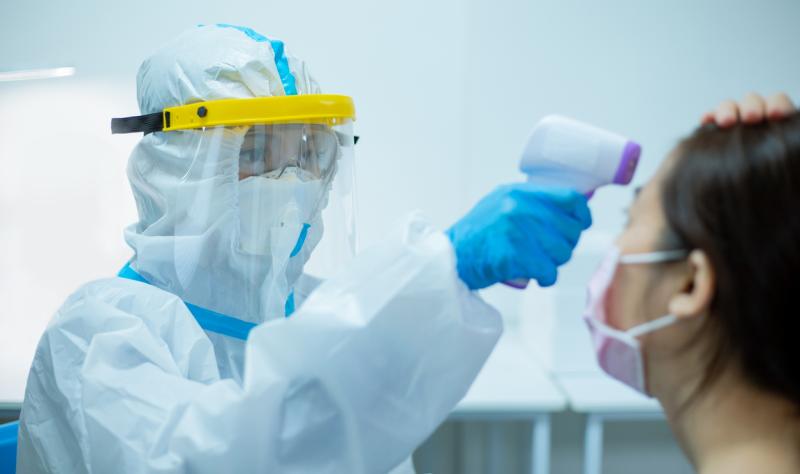11 of 14 Mass. counties now have high levels of COVID-19, CDC reports; indoor masking recommended – The Boston Globe


Eleven of the 14 counties in Massachusetts now have high community levels of COVID-19 and people in those areas should wear masks in indoor public spaces, according to the US Centers for Disease Control and Prevention.
The only counties that don’t have high levels are Bristol, Hampden, and Hampshire, which have medium levels, according to the CDC’s website, which rates virus levels in US counties as “a tool to help communities decide what prevention steps to take.”
“This is concerning,” said Dr. Sabrina Assoumou, an assistant professor of medicine at Boston University School of Medicine and an attending physician in the section of Infectious Diseases at Boston Medical Center. “There’s a lot of COVID around.”
“People are tired, and they feel like, ‘I don’t want to be masking up forever.’ But think of masking as one of those tools we use temporarily so we can bring cases down to a more manageable level,” she said. “Let’s all mask up while cases are high right now so we can decrease the level of transmission in the community and we can all have a good summer.”
The CDC determines community COVID-19 levels by looking at hospital beds being used, hospital admissions, and the total number of new COVID-19 cases in an area, according to the CDC website.
The CDC recommends that people take greater precautions the higher the level. Masking in indoor public spaces, including schools, regardless of vaccination status, is only recommended by CDC when communities reach the high level, though the agency notes that people can wear masks at any level based on personal preference.
COVID-19 cases, hospitalizations, and other metrics in Massachusetts have been rising steadily after a precipitous fall from the early days of this year, when the Omicron variant drove a deadly surge. Deaths have also edged upward. Experts have been concerned about the arrival of the Omicron subvariants BA.2 and now BA.2.12.1.
Levels of the coronavirus detected in Eastern Massachusetts waste water, considered an early warning of future increases in reported cases, have continued to rise after a dip. And cases among school students and staff have been on the rise for eight consecutive reporting weeks, with more than 17,000 in the most recent weekly report.
But at the same time, most pandemic restrictions have been dropped, and many Massachusetts residents have jumped at the chance to try to get back to normal after more than two years of disruption.
As COVID-19 cases have risen (seven counties had high COVID-19 levels a week ago), Boston has urged residents to wear masks in indoor public spaces. Northampton public schools reinstated their mask mandate, while some Boston-area public school systems have recommended students return to wearing masks. The state said last week it was monitoring the situation.
Jonathan Levy, who chairs the department of environmental health at Boston University’s School of Public Health, said Massachusetts currently has some of the nation’s worst COVID-19 case and hospitalization rates “so it is clear that cities and the state need to do more.”
“If there is no political will for indoor mask mandates, governments should be aggressively trying to increase booster rates among vulnerable communities, ensuring that all residents have access to high-quality masks, and communicating clearly and frequently that the pandemic is not over and that we are in the midst of a substantial wave.”
Assoumou said public officials “should look at their local data, especially the 11 counties who are high, and convey to the public very clearly right now, ‘There’s a lot of COVID so let’s work together to get these numbers down.’”
She said the tools exist to stop the pandemic, including vaccinations, boosters, high-quality masks, testing, outpatient treatments, and improved ventilation of indoor spaces.
“Our tools work. Let’s use them and make them accessible to others, to everyone,” she said.
Material from prior Globe stories was used in this report.
Martin Finucane can be reached at martin.finucane@globe.com. Amanda Kaufman can be reached at amanda.kaufman@globe.com. Follow her on Twitter @amandakauf1.



